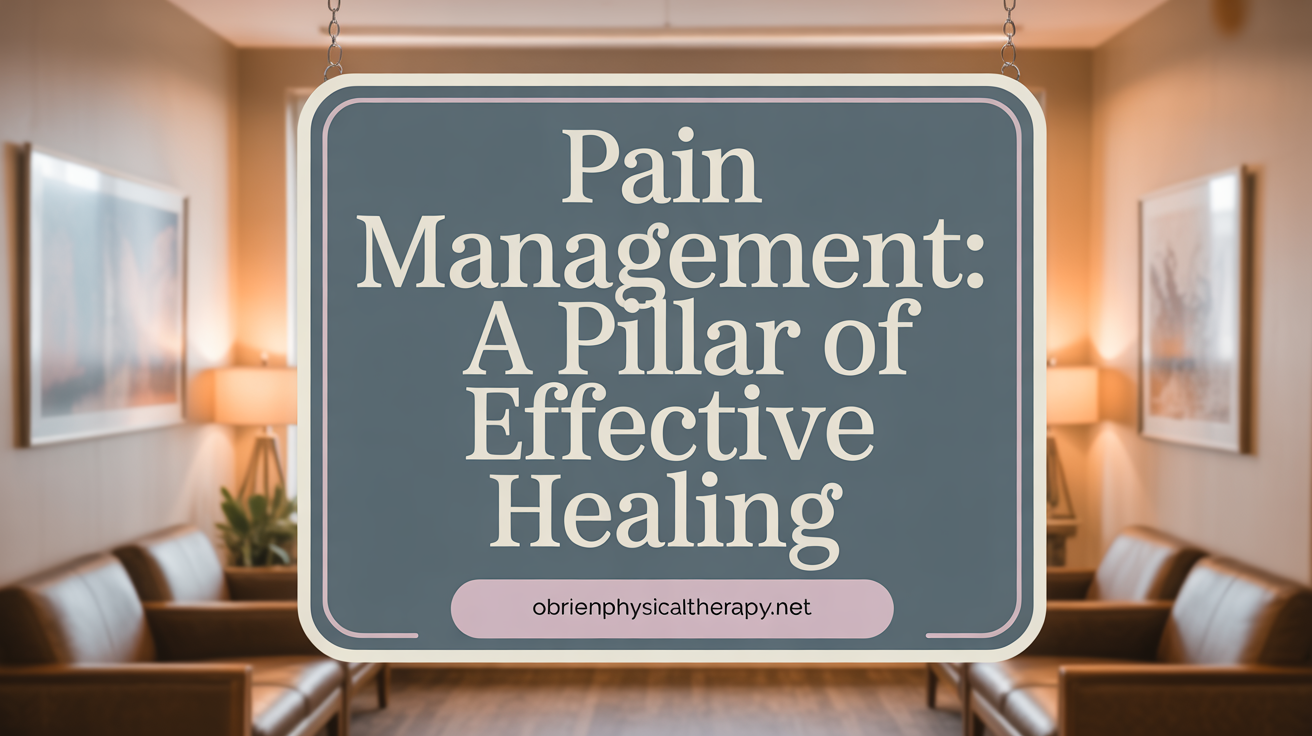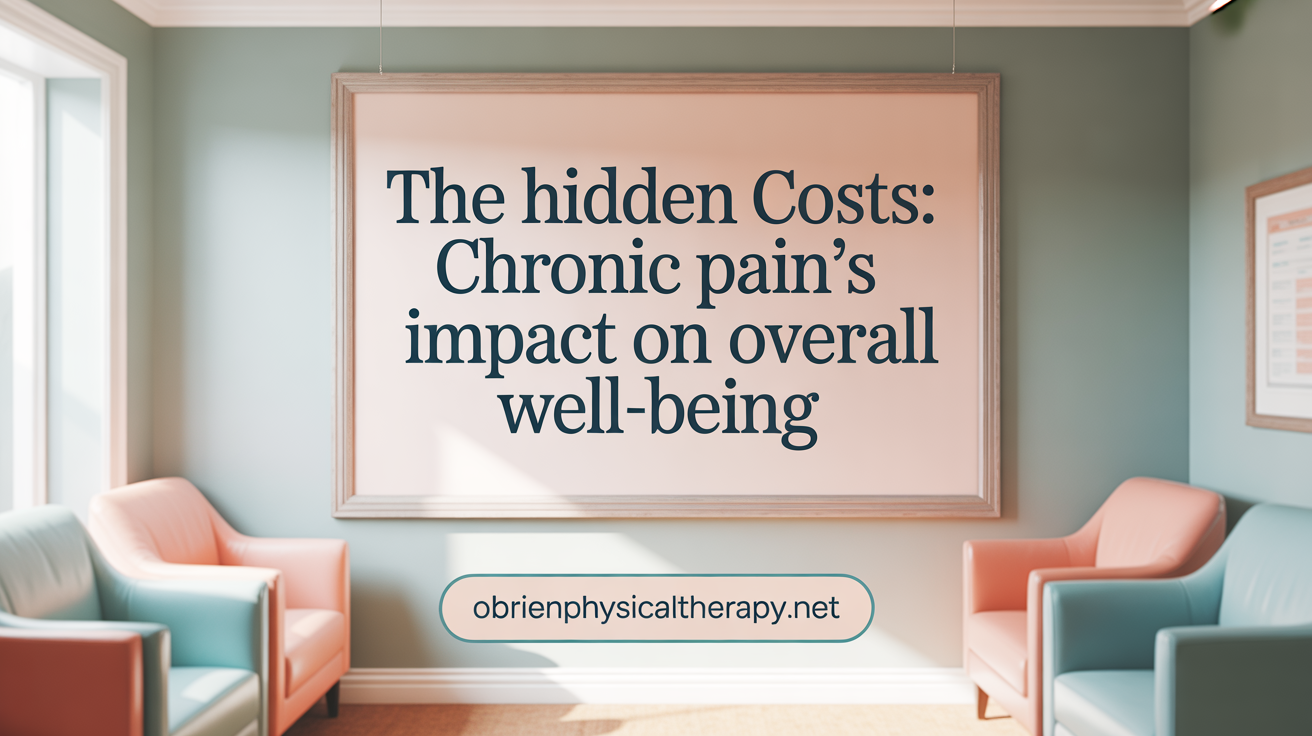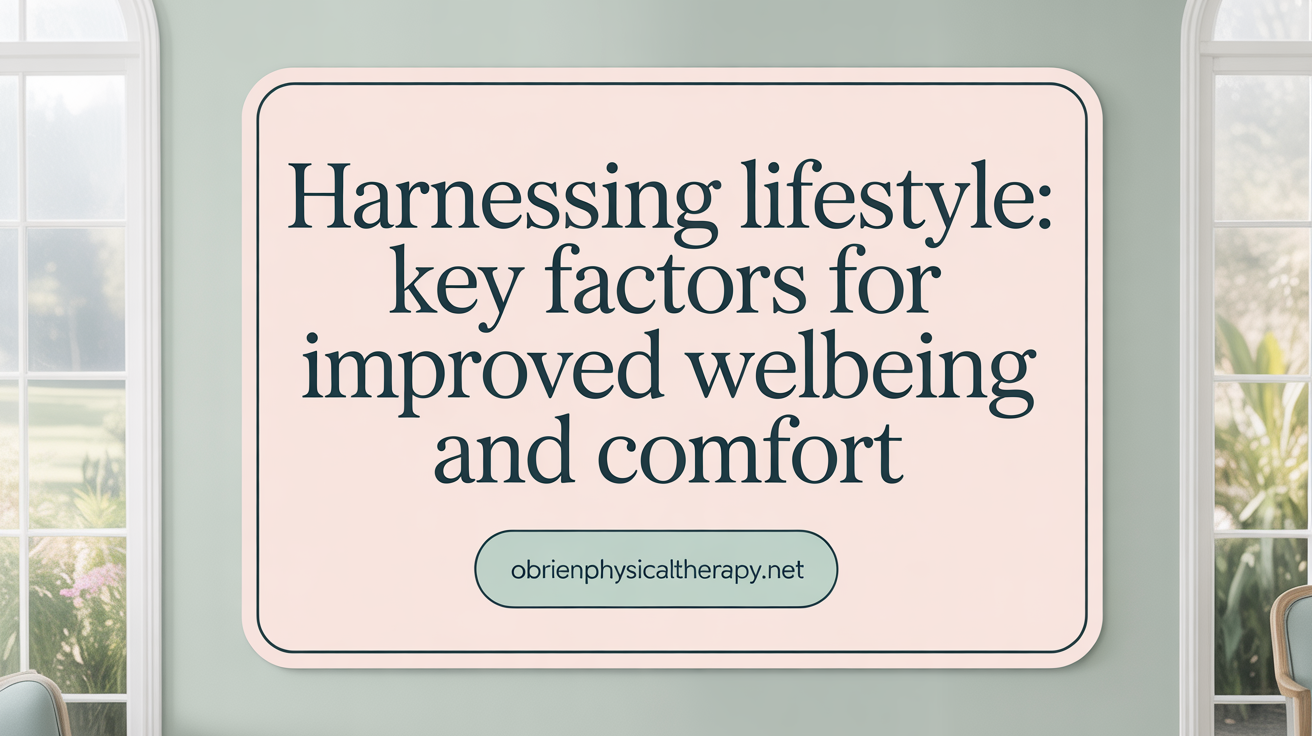Understanding the Journey from Chronic Pain to Wellness
Chronic pain affects millions globally, posing profound challenges that impact physical health, mental well-being, and overall quality of life. Yet, with the right expert care and holistic strategies, individuals can transition from mere pain management to sustained progress in health and wellness. This article explores the critical role of multidisciplinary healthcare, patient education, lifestyle factors, and integrative therapies in supporting long-term wellness for those living with chronic pain.
The Vital Role of Expert and Holistic Care in Long-Term Wellness

What role does expert healthcare and holistic care play in supporting long-term wellness and managing chronic pain?
Expert healthcare, combined with holistic treatment approaches, is essential in managing chronic pain effectively and fostering long-lasting wellness. These integrated strategies focus on more than just alleviating symptoms; they aim to address the underlying causes of pain and promote overall health.
Holistic care employs a blend of physical, emotional, psychological, and spiritual methods. For example, physical therapies like chiropractic adjustments and physical therapy work to improve mobility and reduce pain. At the same time, mental health support, including mindfulness, counseling, and cognitive-behavioral therapy, helps patients cope with emotional stress and change perceptions that can influence pain experiences.
Practices such as acupuncture, yoga, and meditation foster relaxation, reduce inflammation, and strengthen the mind-body connection. These strategies support the body's natural healing processes and can lead to decreased reliance on medications, minimizing side effects.
Patient empowerment through personalized treatment plans is another crucial element. Healthcare professionals tailor interventions to the individual's needs, encouraging lifestyle modifications such as improved nutrition, stress management, and regular gentle exercise, all of which contribute to sustainable health.
Expert guidance ensures safety, efficacy, and consistency across various therapies. It also helps detect potential sources of pain through advanced diagnostics, guiding customized interventions that promote resilience and independence.
By combining clinical expertise with holistic practices, patients are better equipped to manage their condition, enhance their quality of life, and prevent future health issues. This comprehensive approach supports not just pain relief but also fosters emotional well-being, physical strength, and overall vitality, creating a foundation for enduring health and wellness.
Comprehensive Pain Management as a Crucial Component of Healing

Why is pain management important in the healing process?
Pain management plays a vital role in the healing journey because it influences how well the immune system functions. Proper management helps ensure the body can repair tissues effectively and fight off infections. While acute pain—such as that experienced immediately after an injury—can trigger beneficial inflammation that supports healing, unmanaged chronic pain has the opposite effect.
Chronic pain persists for longer than three months and often results in ongoing inflammation. This persistent inflammatory state can activate stress responses in the body, such as increased cortisol levels, which are known to suppress immune functions. Elevated cortisol can decrease the activity of natural killer cells and other immune defenses, making the body less capable of fighting infections and delaying wound healing.
Furthermore, unmanaged pain can lead to psychological issues like depression and anxiety, which also negatively impact immune health. Pain-related stress can alter hormonal balances and immune responses, further impairing recovery.
Sleep disturbances are common in individuals experiencing chronic pain, and poor sleep quality is linked to decreased immune efficiency. When sleep is disrupted, the body's ability to produce infection-fighting antibodies and cytokines diminishes, slowing down the healing process.
In summary, effective pain management helps maintain immune system balance, reduces harmful inflammation, and fosters an environment conducive to healing. It supports faster recovery, minimizes complications, and promotes overall health.
Understanding the Broader Impact of Chronic Pain on Health and Recovery

How does chronic pain impact overall health and healing?
Chronic pain affects both physical and mental health in profound ways. It can lead to emotional issues such as depression and anxiety, impair cognitive functions, and change vital signs like blood pressure and heart rate. These physiological shifts can interfere with the body's natural healing processes.
Furthermore, ongoing pain often disrupts basic functions like sleep and appetite. Sleep is essential for tissue repair and immune function, while proper nutrition supports healing and overall resilience. When pain hinders these activities, recovery can slow significantly.
The emotional toll of persistent pain can cause social withdrawal and reduce daily functioning, which worsens mental health and contributes to a cycle of distress.
To improve overall well-being and promote healing, effective pain control is vital. Managing pain efficiently helps restore mobility, mental clarity, and social engagement, ultimately supporting a quicker recovery and better health outcomes.
Effective Strategies for Long-Term Chronic Pain Management
What strategies can support long-term management of chronic pain?
Managing chronic pain over the long term requires a holistic approach that combines physical, psychological, and lifestyle interventions. Physical activity, such as gentle exercises like walking, swimming, or gardening, plays a vital role in helping to block pain signals, improve flexibility, and maintain mobility. These activities are beneficial because they promote neuroplasticity and physical resilience without overstressing the body.
Breathing and relaxation techniques are also essential. Practices like slow, deep breathing, mindfulness, and meditation can calm the nervous system, reduce muscle tension, and promote emotional well-being. These methods help diminish the perception of pain and can be practiced daily to build resilience against pain flare-ups.
Psychological therapies—including cognitive-behavioral therapy (CBT), hypnotherapy, and mindfulness-based stress reduction—address the emotional and mental aspects of chronic pain. They help reshape negative thoughts, improve coping skills, and manage stress, ultimately reducing how pain is perceived and experienced.
Participating in pain management courses and self-management programs equips individuals with valuable skills to take control of their condition. These often include goal setting, problem-solving, and activity pacing, which support maintaining independence and a better quality of life.
Maintaining good sleep hygiene is crucial, as sleep disturbances can exacerbate pain and hinder recovery. Establishing regular sleep routines, avoiding screens before bedtime, and creating a comfortable sleep environment can significantly improve sleep quality.
Social support from family, friends, and support groups provides emotional reassurance and encouragement, which are vital elements in long-term pain management. Engaging in social activities helps reduce feelings of isolation and depression linked to chronic conditions.
Lastly, consulting healthcare professionals for personalized treatment plans ensures that management strategies are tailored to individual needs. These plans often involve a combination of medications, physical therapy, psychological support, and sometimes alternative therapies like acupuncture or nutritional counseling.
Together, these strategies emphasize maintaining functionality and improving quality of life, shifting the focus from solely controlling pain to living well with it. Regular reassessment and adaptation of these approaches are essential as circumstances and health conditions evolve.
The Essential Influence of Lifestyle Factors on Pain and Wellness

How do lifestyle factors like sleep, movement, stress management, and diet influence long-term wellness and pain control?
Lifestyle choices play a crucial role in managing chronic pain and promoting overall health. These factors are interconnected, each influencing the others and collectively shaping long-term wellness.
Good sleep is fundamental. It supports body recovery, reduces inflammation, and helps regulate hunger hormones, which are essential for maintaining a balanced diet and energy levels. Quality sleep also improves mental clarity and emotional resilience.
Diet is another vital factor. Consuming anti-inflammatory foods such as fruits, vegetables, fatty fish, and whole grains can decrease inflammation and support healing. Proper nutrition not only lessens pain but also strengthens the immune system and improves mental health.
Physical activity is beneficial beyond just increasing strength. Regular movement releases endorphins, natural painkillers, and mood enhancers. It improves mobility, reduces muscle tension, and can promote better sleep, creating a cycle that supports pain management.
Stress management is equally important. Chronic stress triggers the release of stress hormones like cortisol, which can worsen inflammation and pain. Techniques such as mindfulness, meditation, and deep breathing help calm the nervous system, reducing stress’s negative impact.
Together, addressing sleep quality, nutrition, physical activity, and stress management creates a balanced and sustainable approach to chronic pain control. Implementing healthy habits across these areas can lead to improved functioning, reduced pain, and enhanced overall wellness for the long term.
Multidisciplinary and Preventative Approaches in Sustaining Health
How do multidisciplinary therapies contribute to sustained health and pain management?
Multidisciplinary therapies play a vital role in promoting long-term health and managing chronic pain effectively. By combining physical, psychological, and social strategies, these approaches provide tailored treatment plans that address the multifaceted nature of chronic pain. Teams often include doctors, psychologists, physiotherapists, and other specialists collaborating to develop comprehensive care.
This integrated model enhances outcomes by supporting functional improvements, reducing pain levels, and improving overall quality of life. It also diminishes dependency on medications by incorporating non-drug therapies such as physical exercise, cognitive-behavioral therapy, and holistic practices. Evidence from systematic reviews and clinical trials indicates that such multidisciplinary approaches lead to sustained benefits, even years after their implementation. Despite some uncertainties around cost-effectiveness, these programs are praised for their flexibility and patient-centered nature, making them essential in long-term pain management.
How is the integration of preventative health practices important for ongoing well-being and pain management?
Preventive health practices are fundamental to maintaining ongoing wellness and ensuring effective management of pain over time. Early detection through screenings and assessments allows for timely intervention, preventing minor issues from developing into chronic conditions. Incorporating health initiatives such as vaccinations, lifestyle modifications, nutritious diets, and regular physical activity helps minimize disease risks.
Addressing social factors—like stress, social support, and mental health—is also crucial, as these heavily influence pain perception and coping abilities. Psychological assessments and therapies aim to improve resilience, reduce emotional burden, and promote holistic healing.
Emphasizing prevention benefits individuals by enhancing quality of life and reducing the need for costly treatments later. It also supports sustainable healthcare by decreasing the long-term burden of chronic illnesses. Overall, integrating preventive strategies creates a proactive health culture, crucial for long-term well-being and resilience against pain.
Empowering Patients through Education and Expert-Guided Recovery
Why is patient education essential in pain management and overall wellness?
Patient education plays a crucial role in managing chronic pain effectively. Teaching patients about their specific conditions, treatment options, and the importance of lifestyle factors enhances their understanding, which leads to better adherence to treatment plans. When patients are informed about different pain types, medication risks, and non-drug strategies such as physical activity and holistic practices, they can make more confident decisions about their health.
Education also builds trust and encourages open communication with healthcare professionals. This active engagement fosters a sense of control and motivates individuals to stick with long-term wellness strategies. Moreover, understanding the mind-body connection and the influence of emotional health helps patients address mental health aspects linked to pain. Regularly evaluating educational efforts ensures patients retain useful information, making them more capable of managing their pain and maintaining overall well-being.
How do expert-guided rehabilitation and recovery programs help transition patients from pain management to long-term wellness?
Expert-guided rehabilitation programs offer a structured, multidisciplinary approach that supports patients beyond immediate pain relief. These programs include specialists such as doctors, psychologists, physiotherapists, and nutritionists who tailor interventions based on detailed assessments.
By focusing on functional improvements rather than just symptom reduction, these programs empower patients to develop self-management skills. Techniques like goal setting, stress management, and physical activity are emphasized to boost resilience and independence. Psychological support and mindfulness practices help manage emotional challenges associated with chronic pain.
Regular assessments and personalized adjustments ensure sustained progress. Moving from a focus on pain control to enhancing quality of life helps prevent future pain episodes and promotes overall health. Consequently, patients learn to live well with chronic pain, maintaining mobility, confidence, and emotional stability over the long term.
From Pain Management to Lasting Wellness: The Role of Expert Care
The path from chronic pain to sustainable wellness is multifaceted, requiring expert healthcare that combines medical precision with holistic care concepts. Addressing physical symptoms alone is insufficient; successful long-term management involves empowering patients through education, integrating multidisciplinary therapies, and fostering lifestyle changes that support immune function, mental health, and emotional resilience. Preventative approaches and expert-guided recovery programs are integral to this progression, enabling individuals not only to manage pain effectively but to thrive with improved functionality and quality of life. By embracing a comprehensive, personalized, and proactive model of care, patients can transform their experiences of chronic pain into journeys of healing, growth, and lasting health.
References
- [PDF] From Pain to Progress: - DiVA portal
- Enhancing Overall Wellness Through Expert Care
- From Pain To Wellness: Pain Management Clinic in Oakbrook ...
- Living well with chronic pain: the role of pain-management ...
- Health and Wellness Programs: Real Recovery and Lasting Results
- How to Approach Chronic Pain: Expert Whole-Person Care at the ...
- Pain and Wellness: How They're Connected - Consult QD
